By Bourne, Undergraduate student in the UT International Relations and Global Studies Department and Liberal Arts Honors Program
When I first accepted this internship, I immediately saw parallels between Panama City and Austin: two capital cities with amazing nightlife, an incredible mix of biodiversity and modern cityscapes, and the most mouth-watering food at every turn. Now, after spending a month working at the Latin America Regional Office of International IDEA, Panamá has lived up to every expectation, and my time here has catapulted my career in the right direction.
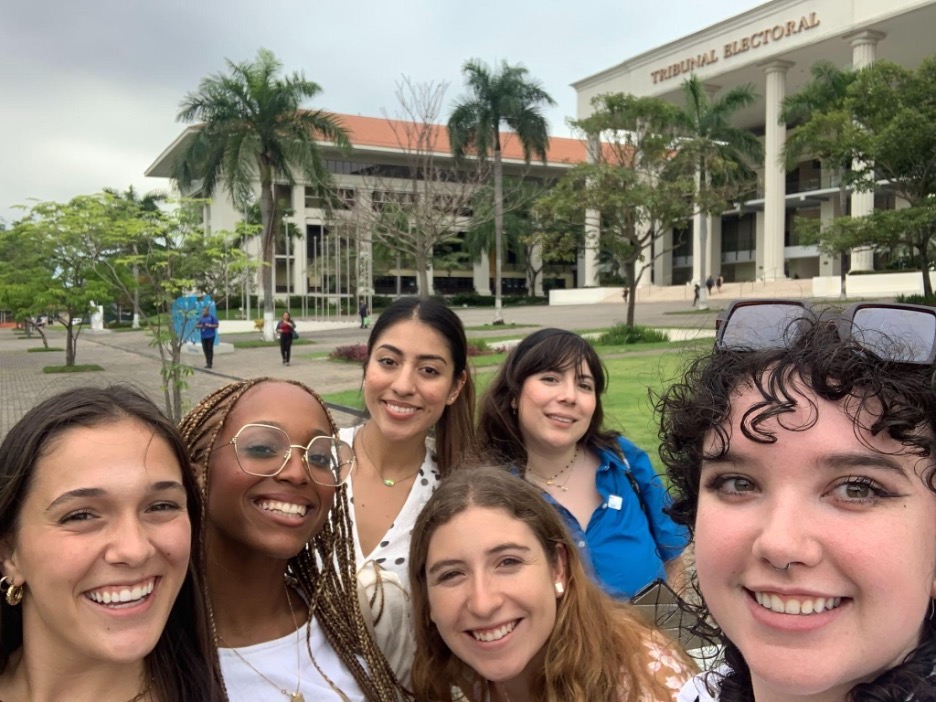
As an International Relations graduate passionate about electoral processes and democratic governance, securing an internship at International IDEA was a dream come true. This prestigious institution—responsible for supporting elections in member countries and ensuring their fairness and transparency—gave me a unique opportunity to work with some of the best leaders in electoral research. In the past month, I have gained invaluable insights into the world of democratic development, visited various research institutes and libraries, and learned from some of the most knowledgeable professionals in the field.
Upon arrival, I was welcomed with open arms by a team of dedicated investigators who introduced me to the structure and functions of International IDEA. In Panama, the institution is divided into the Panama country office and the Latin America regional office, each specializing in different levels of focus on electoral processes.
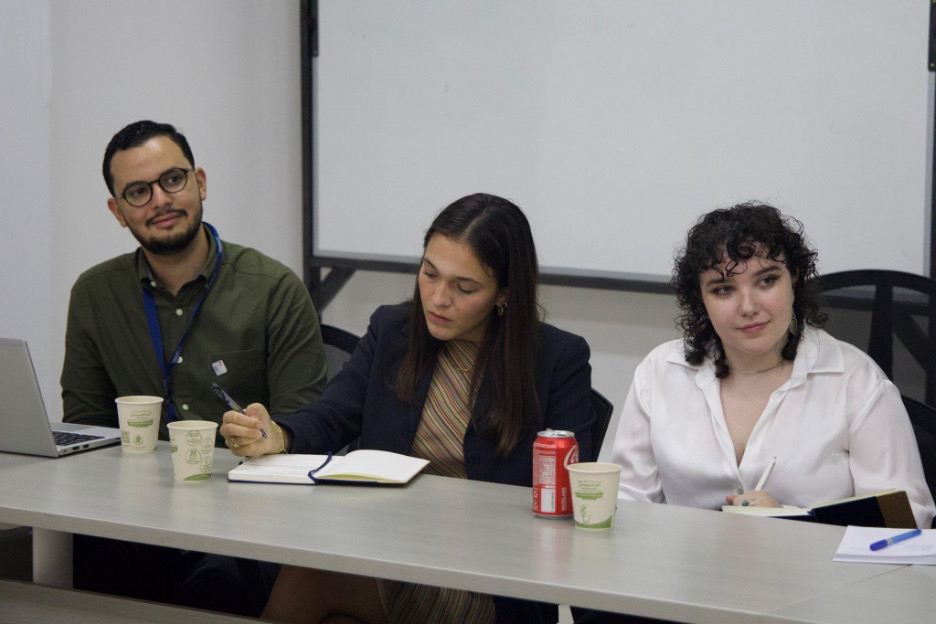
One of my primary responsibilities at the Latin America regional office is researching how artificial intelligence (AI) is affecting democratic processes, such as elections and civic engagement. This topic is crucial and extremely applicable right now as more people than ever in history head to the polls this year during this election super-cycle. As part of this project, I am involved in researching results from trusted experts, creating a timeline of AI progression based on information from national organizations in Latin America and around the globe, and finding laws initiating AI regulations. In the age of increased awareness of deep fakes and digital technology, governments must be as diligent as they can in controlling AI-generated content.
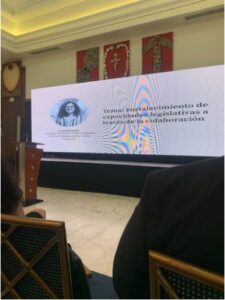
In my second week, I had the opportunity to attend an event called “Espacios para la Democracia” hosted by one of my coworkers to discuss the Cobre Panama copper mine. The panel was sponsored by Sal de Las Redes, a political group funded by Panamanian youth. The event featured four panelists, all of them extremely knowledgeable about the legal stipulations and impacts of the Canadian mine that has created much controversy in Panama. The recent closure of this mine was sparked by one of the largest protests ever held in Panama, calling for more environmental protections and culminating in the Supreme Court of Panama ruling that the government’s contract for the mine was unconstitutional. I thoroughly enjoyed listening to each speaker and learned a lot more about political activism and civil rights movements in Panama.
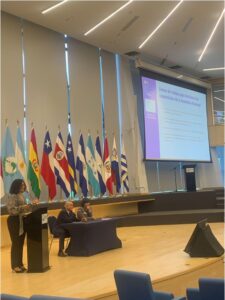
Another significant aspect of this internship was observing a session at the National Assembly of Panama where International IDEA and other multi-governmental organizations shared their latest election analysis. International IDEA’s Latin America Regional Office is responsible for observing the financial activities of political parties and candidates in all Latin American countries to ensure compliance with electoral laws and regulations in those countries. I was fortunate enough to attend a legislative session that included presentations by my International IDEA coworker Corina Rueda Borrero and United Nations leaders speaking to these issues.
This experience provided me with a deeper understanding of the roles played by IDEA’s Latin America Regional Office and its host country of Panama in the Latin American region. As one of the fastest-growing economies in Latin America, Panama often sets trends in economic policy that influence neighboring countries. The government has made significant investments in social programs to reduce poverty and inequality, which has had a stabilizing effect on the nation’s political climate. Panama also actively participates in international organizations and treaties, influencing regional policies on trade, security, and environmental issues. I am very fortunate to have spent a lot of time learning from my coworkers in the IDEA Latin America Regional Office.
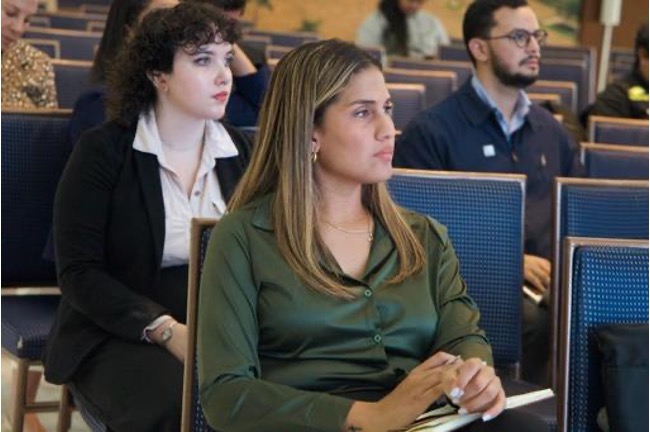
Another fulfilling part of my internship occurred outside of the IDEA offices when IDEA took us to several cultural and historical parts of Panama City that have profoundly impacted my viewpoint on the United States’ relationship with Panama. This experience has deepened my understanding of the intricate and multifaceted ties between the two nations, highlighting both the positive and challenging aspects of their interactions.
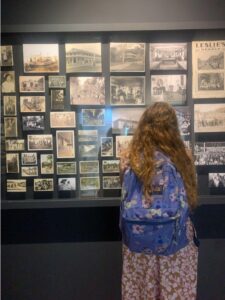
Visiting the Panama Canal Museum was a key moment in understanding the historical significance of the canal and its implications for U.S.-Panama relations. The canal, a monumental engineering feat, symbolizes both collaboration and contention. The museum details the immense efforts by U.S. engineers and workers to construct the canal, transforming global trade routes. However, it also stresses the political and social ramifications of U.S. control over the canal zone, which lasted until the end of the 20th Century.
The visit to the Human Rights Investigation Office at the University of Panama shed light on the human cost of political and military actions in Panama. Here, I learned about the ongoing efforts to document and address human rights abuses in Panama, many of which are connected to periods of political unrest and foreign intervention. This experience was particularly eye-opening as it highlighted the resilience of Panamanian society in seeking justice and accountability. It also emphasized the importance of human rights in fostering healthy international relationships.
The Investigation Office for the U.S. Invasion of Panama in 1989 provided a stark reminder of the destructive impact of military interventions. The invasion, aimed at toppling the Noriega regime, resulted in significant civilian casualties and long-term social disruptions. Engaging with the narratives of those affected by the invasion was a sobering experience that brought to light the often-overlooked human aspect of geopolitical maneuvers. This visit emphasized the importance of considering the local perspective when assessing international actions, prompting for me a more critical and nuanced view of America’s foreign policy decisions.
Through these visits, I feel a heightened responsibility to advocate for policies that prioritize human rights and democratic integrity. The insights gained from these field trips will inform my efforts to develop programs and strategies that address the unique needs and histories of the countries I work with, aiming to ensure that initiatives are both effective and culturally sensitive.
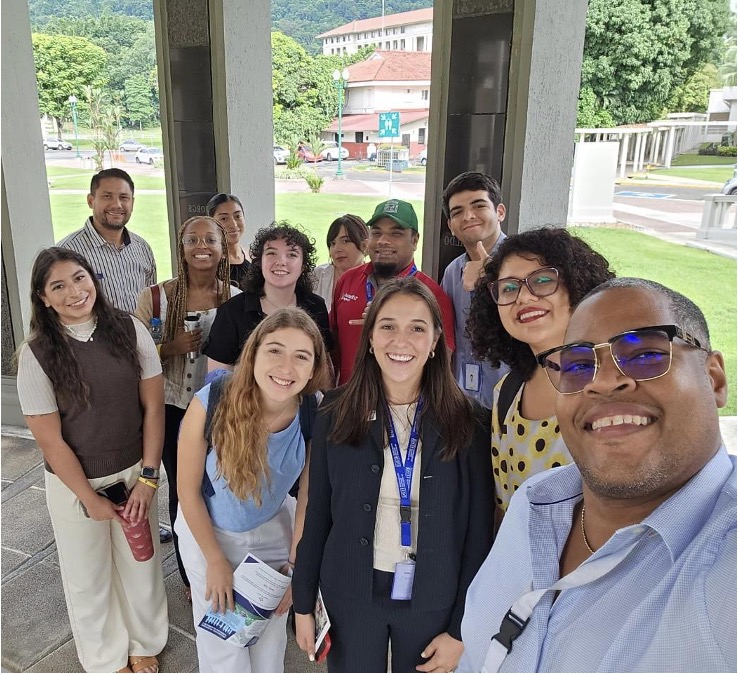
My experiences in Panama have reinforced the importance of dialogue and cooperation in international relations. By fostering mutual understanding and respect, we can build more sustainable and equitable partnerships. This perspective will be invaluable in my contributions to International IDEA and beyond, as we strive to support democratic processes and institutions that are resilient, inclusive, and reflective of the people they serve.
I have thoroughly enjoyed learning and researching more about democracy in Latin America thanks to this internship. The firsthand experiences and on-the-ground insights have been invaluable, offering a depth of understanding that surpasses traditional classroom learning. This experience abroad has reinforced the importance of engaging directly with the people, places, and histories that shape democratic processes. I highly encourage others to join the program next year, as it offers a unique and enriching opportunity to broaden perspectives and contribute meaningfully to the promotion of democracy.
